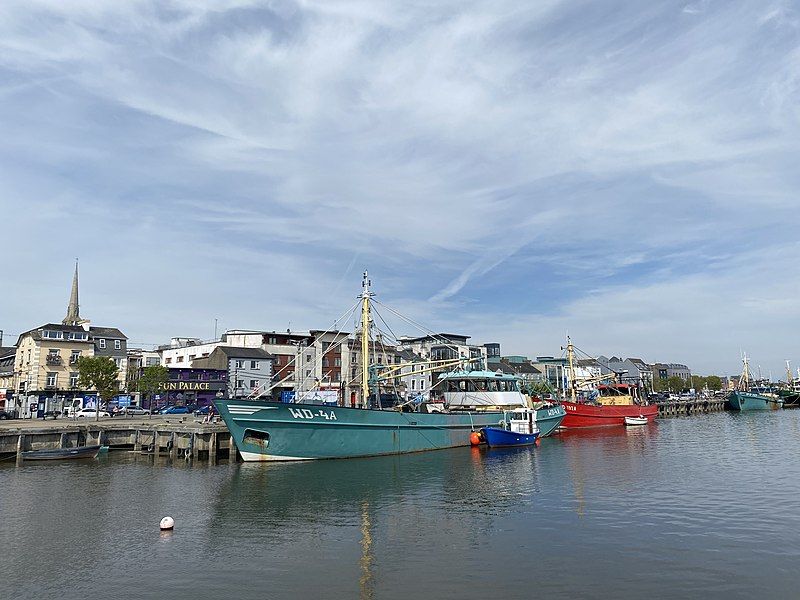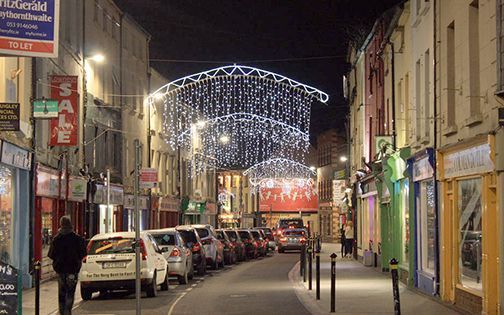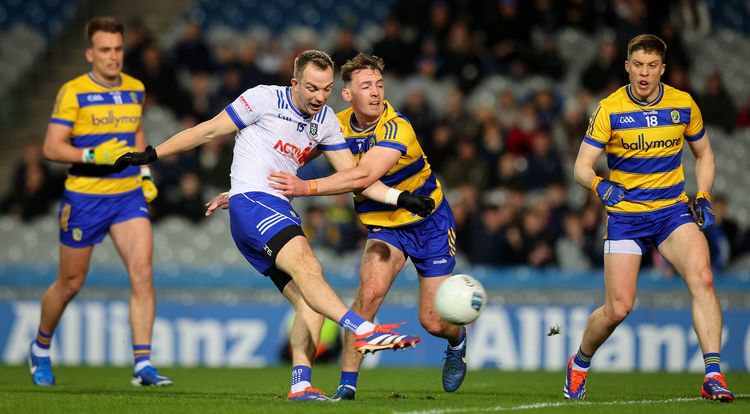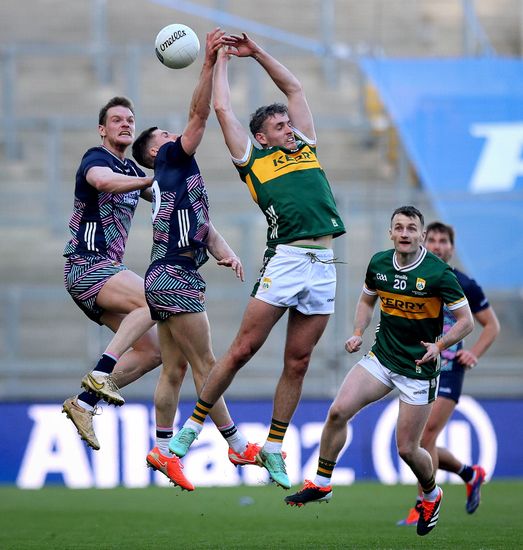The first wave arrived home around December 15th and contained many seasoned “deep-sea” sailors. My father was often among them, suntanned from the long South American run down to Buenos Aires.
Wexford would immediately come alive, Christmas lights seemed to sparkle brighter, while laughter and shouted greetings ricocheted down the narrow streets.
And every day the excitement grew as the boat train from London deposited boisterous young emigrants from Cricklewood, Kilburn, and a host of other Irish enclaves.
They strutted around in the latest fashions, the men in their tailored suits, Windsor-knotted ties, and Brylcreemed hair, the women coiffed and radiant as Marilyn, Ava, or Sophia at the Saturday night pictures; everyone in a rush to make an impression, for in less than a week they’d be back in London “digs” at the mercy of landladies, and slaving in factories where the locals called them Paddy, no matter what their names.
A part of Wexford Town's Main Street.
Such was my childhood Christmas in the emigrant 1950s and early 1960s.
In many ways Wexford was an ideal sized town – around 12,000 people back then. You knew most people, at least by sight. Everyone nodded their recognition. Older men still raised their hats to ladies, and it was a rare person who didn’t formally salute the clergy.
The vast majority of us were Catholics, the churches crowded with daily communicants, while organizations like The Legion of Mary, The Third Order of St. Francis, and The Holy Family Confraternity flourished.
On Christmas Eve, Wexford’s long and winding Main Street would be jammed with crowds of all ages eager to see and be seen. In a rare break with class convention, black-faced John Wilson, the coal-delivery man was allowed to treat his big dray horse to a pint of Guinness in the exclusive bar of Whites Hotel.
Our three large churches outdid themselves during Advent, with laurel and holly branches bringing life to altars, pulpits, pillars, and dusty stations of the cross.
One might think that the young emigrants, exiled 50 weeks of the year in heathen England, would sleep in of a morning, but no, they displayed the same universal faith, even arriving well-oiled from the pubs to the lustrous Christmas Eve Midnight Mass.
The Catholic Church may have had scandalous time-bombs ticking that would explode in the following fifty years, but it provided a regal unity for my childhood Christmases.
The Quays along the town's waterfront.
Each church boasted impressive choirs, and since we were all versed in Gregorian Chant the old buildings throbbed with a mystical fervor when hundreds of voices joined together in hymn and carol.
On Christmas Eve, Wexford’s long and winding Main Street would be jammed with crowds of all ages eager to see and be seen. In a rare break with class convention, black-faced John Wilson, the coal-delivery man was allowed to treat his big dray horse to a pint of Guinness in the exclusive bar of Whites Hotel.
We were blissfully unaware that this was the last gasp before television sucked much of the social life out of Irish towns. Nor was there an Amazon to provide gifts through the click of a computer. Instead, we forked over hard-earned savings at family-owned shops, all the time praying that the presents we’d been eyeing for months would still be available.
The pubs were packed, and the happy hum of men’s voices could be heard from within. Few single women frequented licensed premises back then. Reputations were valuable. Married women were already safely at home preparing for Santa’s annual visit.
Christmas Day was devoted to family, and after mass very few ventured outside. Christmas dinner began around 2pm and would stretch into the evening, with much reminiscence, a song or two, or a recitation in front of a drowsy fireplace.
St. Stephen’s Day, however, exploded with goodwill and welcome visits. Those with access to a car would travel into the countryside to witness the local hunts, when the remaining, red-coated gentry, and Fine Gael farmers with social aspirations, would ride off in search of the wily fox.
All single people attended the riotous St. Stephen’s night dances in parish halls and hotel ballrooms where mistletoe and romance hung in the air. There was a party or reunion to occupy every night up to New Year’s Eve.
But the emigrants were already packing their bags, and with tears flowing from drink taken, they jammed the railway station while awaiting the boat train.
Summer holidays seemed an eternity away, and London, landlady, and factory were calling, with only memories to help stave off the loneliness.
Those memories would eventually become my own reality, though I chose New York rather than London, as I look back on a child’s Christmas in Wexford.








